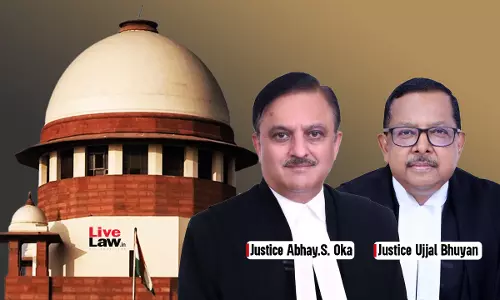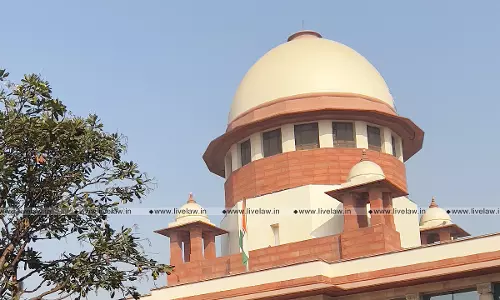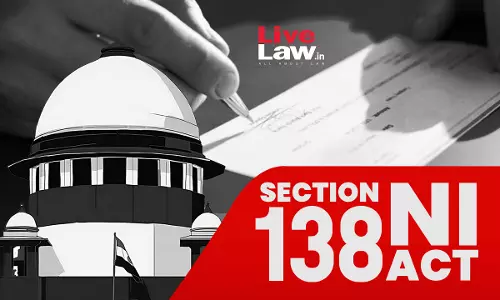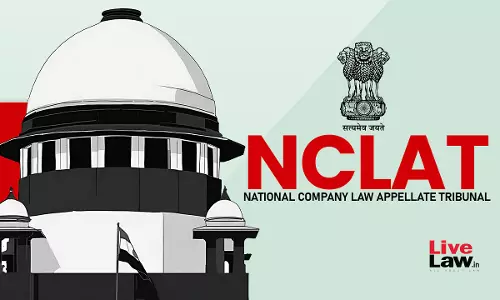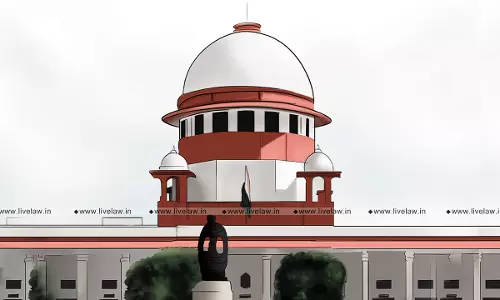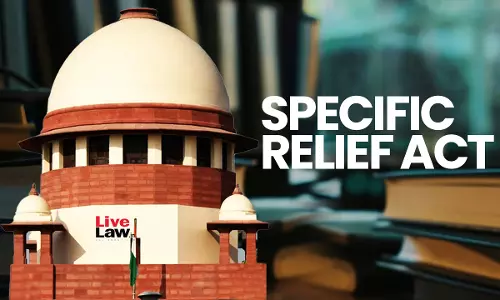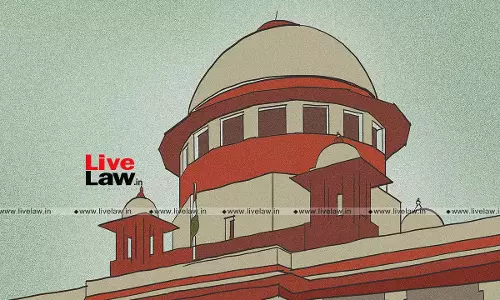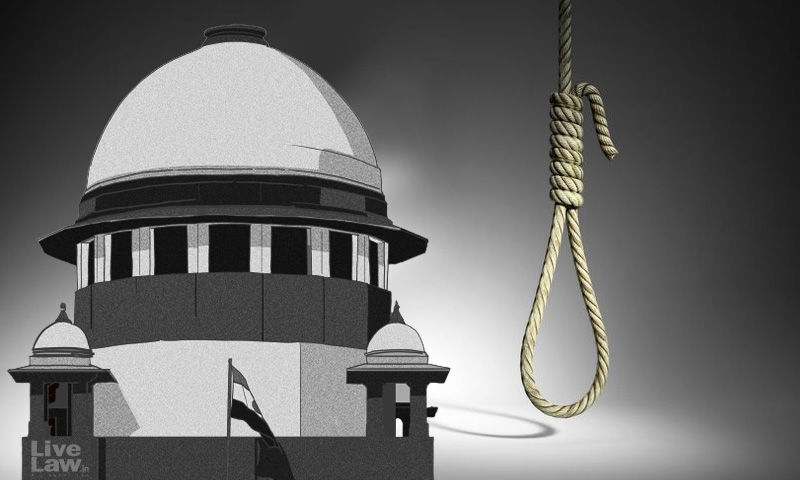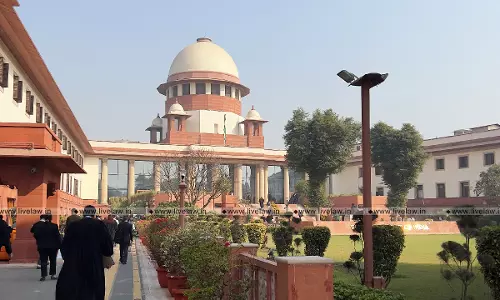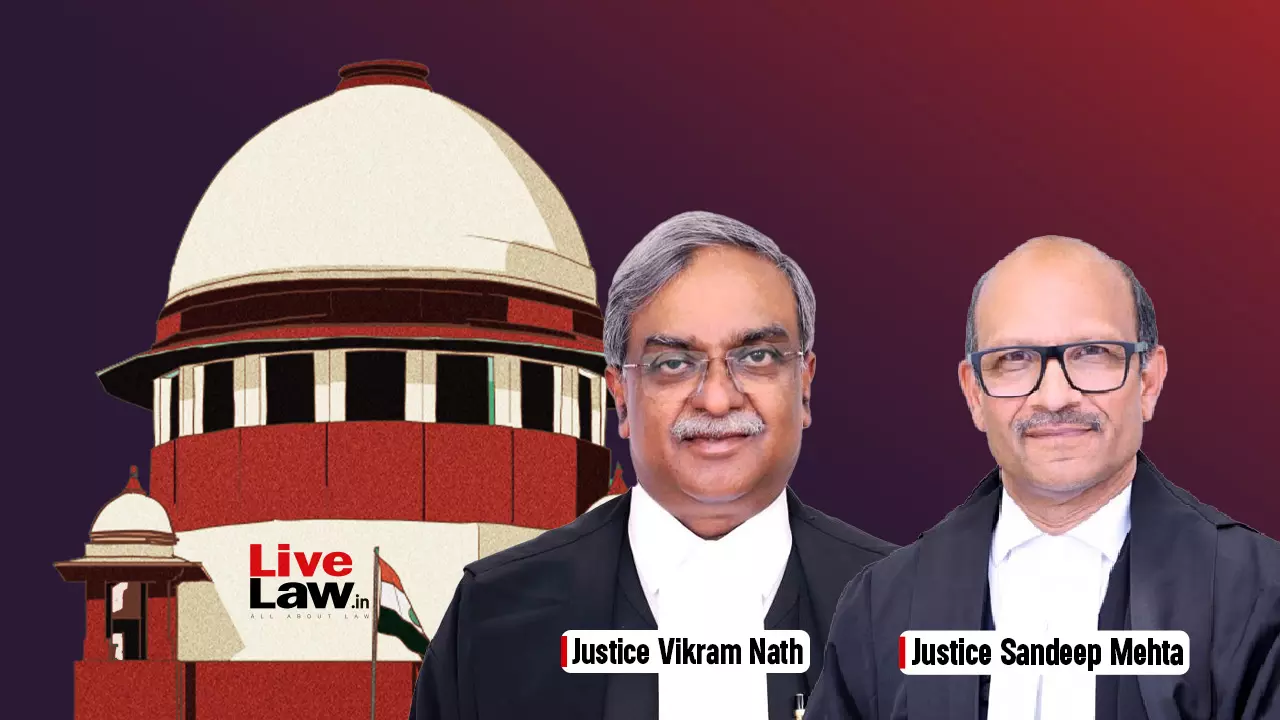Supreme court
S.306 IPC | Suicide Note Alone Insufficient For Conviction Unless Its Proved There Was Incitement By Accused Proximate To Death : Supreme Court
The Supreme Court on Wednesday (March 5) set aside the conviction of a man accused of committing an offence of abetment of suicide by blackmailing the deceased using compromising photographs and videos.The Court observed that for invoking the offence of abetment to suicide under Section 306 of IPC, the prosecution must prove instigation, conspiracy, or intentional aid with a clear mens rea...
S. 45 Evidence Act | Opinion Of Handwriting Expert Must Be Treated With Caution : Supreme Court
The Supreme Court observed that while expert evidence may not always require corroboration, courts must exercise caution when relying on expert testimony particularly the handwriting expert due to the imperfect nature of the science of identification of handwriting. The bench comprising Justices Vikram Nath and Sandeep Mehta heard the case where the Appellant challenged his conviction...
S. 141 NI Act | Non-Executive & Independent Company Directors Not Liable For Cheque's Dishonour Unless Their Direct Involvement Shown : Supreme Court
The Supreme Court reiterated that non-executive and independent directors of a company cannot be held vicariously liable for the company's obligations under the Negotiable Instruments Act, 1881 (NI Act), unless their direct involvement in the company's financial transactions is established. The Court held that merely holding the position of the non-executive and independent director of...
Supreme Court Wonders Why NCLAT Wrote Long Order On Delay Condonation Application Despite High Pendency
The Supreme Court recently expressed surprise that the National Company Law Appellate Tribunal (NCLAT), despite having a high pendency of cases, devoted extensive time and effort to writing a 17-page order on a delay condonation application.A bench of Justice Abhay Oka and Justice Ujjal Bhuyan remarked that lengthy submissions and pleadings by members of the Bar often contribute to...
IBC Moratorium Does Not Bar Execution Of Penalties Imposed Under Consumer Protection Act : Supreme Court
In a significant development, the Supreme Court today (March 4) ruled that an interim moratorium under Section 96 of the Insolvency & Bankruptcy Code, 2016 (“IBC”) does not apply to penalty proceedings under Section 27 of the Consumer Protection Act, 1986 (“CP Act”). The Court explained that Section 79(15) of the IBC excludes certain liabilities, such as fines and penalties, from...
Separate Cut-Off Mandatory For Persons With Disabilities Category In Judicial Service Selections : Supreme Court
In its landmark judgment concerning appointment of visually impaired persons in judicial services, the Supreme Court directed the Rajasthan Judicial Service Examinations authorities to declare separate cut-off marks and publish separate merit list for Persons with Disabilities (PwD) category at every stage of the examination and proceed with the selection process accordingly. A bench of...
Specific Relief Act | Appellate Court Must Specify Time Period To Deposit Sale Consideration For Specific Performance: Supreme Court
The Supreme Court recently advised Appellate Courts to specify the time limit for depositing the balance sale consideration, as required under Order XX Rule 12A of the CPC, in cases of specific performance involving the sale or lease of immovable property. Order XX Rule 12A of Code of Civil Procedure, 1908 (“CPC”) states that where a decree for the specific performance of a contract for...
'Hangman's Noose Be Taken Off, Let Him Be In Prison Till End' : Supreme Court Commutes Death Sentence Of Father Who Killed Children
Citing factors such as lack of criminal antecedents and other mitigating circumstances, the Supreme Court recently commuted the death sentence of a man accused of killing his two minor children to life imprisonment without remission. The Court reaffirmed the principle that the death sentence should be awarded in “rarest of rare” cases after a thorough consideration of mitigating...
Calling Someone "Miyan-Tiyan” & “Pakistani" In Poor Taste But Doesn't Amount To Offence Of Hurting Religious Sentiments : Supreme Court
The Supreme Court observed that calling a man "Miyan-Tiyan" and "Pakistani" would be in poor taste, but would not amount to an offence of hurting his religious sentiment.Discharging a person of the charge under Section 298 of the Indian Penal Code(Uttering words, etc., with deliberate intent to wound religious feelings), the Court said :"The appellant is accused of hurting the religious...
'Hard To Believe Highly Qualified Woman Allowed Man To Sexually Exploit Her For 16 Years On Marriage Promise' : Supreme Court Quashes Rape Case
"The prolonged period of 16 years during which the sexual relations continued unabatedly between the parties, is sufficient to conclude that there was never an element of force or deceit in the relationship.”



